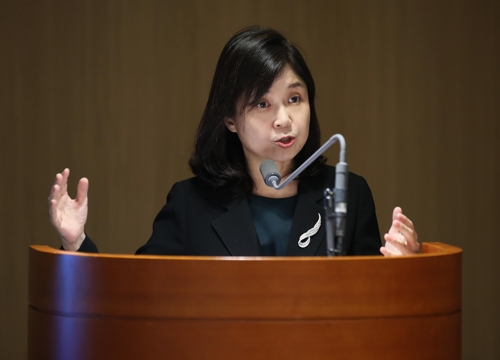Low Inflation Pressure getting decrease
A member of the country's monetary policy board said on Nov. 7, 2018 that strong Korean won-driven downside inflation pressure has been diminishing throughout the year, driving a slight change in the country's yearslong low consumer price trend.
"The Korean won against the U.S. dollar has been on a moderate appreciation since 2016, dragging down domestic prices," Lim Ji-won said in a press meeting at the Bank of Korea (BOK) headquarters in Seoul. "But starting this year, the won has been remaining slightly stronger against the U.S. greenback, along with experiencing wider fluctuation."

In a broader sense, the won has been strengthened against the U.S. dollar for the past two years, bottoming at 1,244.7 won in March 2016 and peaking at 1,054 won in April 2018.
She said the stronger won has decreased prices of imported goods in South Korea and played a role in weakening inflation pressure amid low crude oil prices during the period. Global economic cycles, administered prices and interest rate differences with the United States also lent support to the trend.
South Korea's consumer prices rose 1 percent in 2016, 1.9 percent in 2017 and 1.5 percent in the first 10 months of 2018. The numbers are lower than the BOK's target inflation of 2 percent.
Recently, however, she noted that the appreciating pace of the Korean won against the greenback seemed to slow down as the U.S. economy shows strong signs of recovery.
"It's too early to say that the Korean won is already off the upside cycle," Lim said. "But (the slowdown in the pace) shows that one of the downside pressures on the inflation is diminishing."
Inflation is the most important economic factor that the central bank considers when it decides the policy rate.
The BOK has taken accommodative monetary policy for years, citing low inflation pressure.
At the latest BOK monetary policy meeting in October, the seven-member board froze the key rate at 1.5 percent again since it raised the rate a year ago.
But two dissident members voted for a 0.25 percentage-point increase, while two others said it is almost the right time to raise the rate.
The next rate-setting meeting is scheduled on Nov. 30. (Yonhap)

